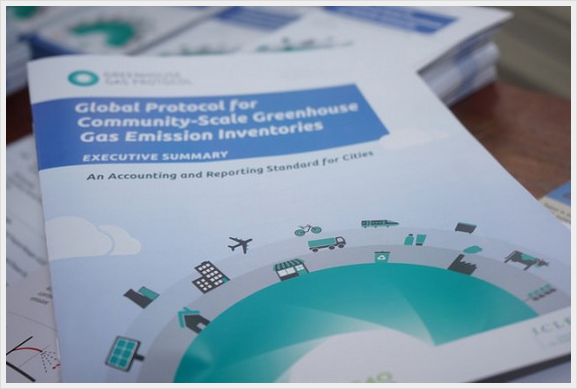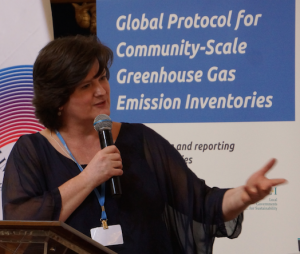
Photo: New-global-GHG-emission-standard-unveiled-for-cities
New global GHG emission standard unveiled for cities
10 December 2014
by Richard Forster
The world’s first standard for cities to measure and report their greenhouse gas (GHG) emissions has been launched in Lima, Peru, on the sidelines of the COP20 climate change negotiations.
“Until recently there has been no consistent way to measure city-level emissions,” said Dr Andrew Steer, President & CEO, World Resources Institute (WRI). “Now, that has changed. We have a common international standard to inform strategies to cut emissions and create better, more liveable cities.”
The WRI, C40 Cities and ICLEI – Local Governments for Sustainability, developed the programme over the last three years in 35 pilot cities. Called the Global Protocol for Community-Scale Greenhouse Gas Emission Inventories (GPC), the developers say the framework helps establish credible emissions accounting and reporting practices, and will aid cities to develop an emissions baseline, improving access to local and international climate financing.

“We need the pro-active engagement of financing institutions world-wide and are exploring how they could engage, especially with regional development banks and other institutions that have the mandate to address climate financing,” Maryke van Staden, Director of the carbonn Centre (Bonn Centre for Local Climate Action and Reporting) told Cities Today. “We are in touch with several finance organisations, and are delighted that the Advisory Committee included a representative from the World Bank, which helped us develop the GPC into a robust standard.”
Inventory methods that cities have used to date vary significantly, raising questions around data quality, and limiting the ability to aggregate local and subnational GHG emissions data. With the new standard, however, developers say that cities are required to measure and report a comprehensive inventory of GHG emissions following the same accounting principles established by the 2006 IPCC Guidelines for National Greenhouse Gas Inventories.
“The friendly competition atmosphere between cities is starting,” added Van Staden. “Now is a good time to actively stimulate this as the GPC offers a consistent framework that makes data comparable. The growing trend in transparent reporting, as can be seen from the 500 subnational governments reporting in the carbonn Climate Registry, is also exciting. Stimulating this competitive spirit will help accelerate climate action, while delivering a range of local benefits in engaged cities.”
The three organisations, supported by the World Bank, will run workshops in cities around the world to train city staff on how to most effectively utilise the GPC. Two versions will be made available, Basic (for any city) and Basic + (recommended for more experienced cities).
Additionally, the WRI Ross Center for Sustainable Cities will use the GPC to help implement low-carbon solutions on the ground in cities. The Urban-LEDS project will also support the first cities in emerging economy countries to submit GPC compliant reporting.
Some cities and subnational governments will release early results in time for the COP21 in Paris during 2015.











